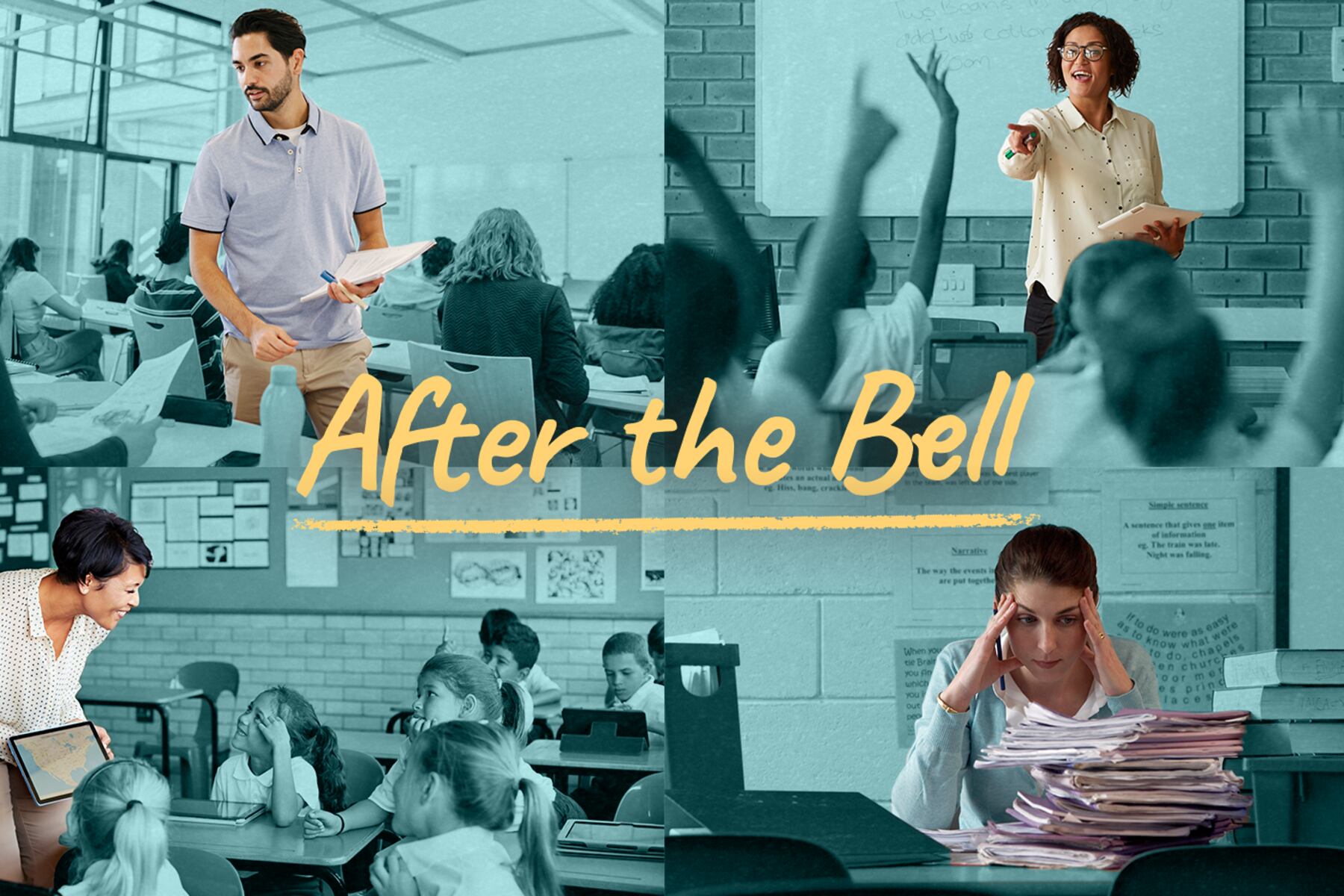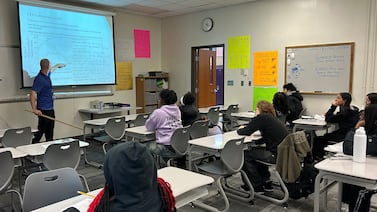Today, Chalkbeat launches a weekly advice column for teachers, by teachers.
It’s been our mission since we started to report on the effort to improve schools for all children.
We’ve formed close relationships with those of you on the frontlines of these efforts — the teachers. We’ve listened to your stories, heard your joys and frustrations, and watched you advocate for your students, schools, and yourselves.
While education professionals are not our only audience, you are our largest. And we know you need more support, from us, from everyone.
Two years ago, we set out to better understand educators’ needs during a time of unexpected disruption to our nation’s schools. Our research sought to answer: What do you need that isn’t being met? What products already exist to help you? What product should Chalkbeat develop to uniquely help address those needs?
In February 2020, we began our research with a survey, “Educator Needs Assessment,” and conducted in-depth teacher interviews before the pandemic irrevocably changed the education landscape. Our updated survey in August 2021 received over 2,000 responses from teachers like you across the country.
Those survey responses made it clear there had been a large shift in what you have needed since the pandemic began. Teachers were no longer interested in new curriculum or professional development offerings — you expressed that those markets are oversaturated. Instead, you said mental health and advice from fellow teachers were your two biggest needs not being met.
To verify our new survey findings, we conducted interviews with teachers, education professionals, and journalists. These interviews provided a better understanding of your needs, especially around mental health.
We knew Chalkbeat could help.
We learned you are more tired than ever before.
“I am not appreciated, I haven’t felt that way [before]. The morale is so low, not just at my school, I made a comment on Facebook about how I love teaching but don’t love where teaching is right now and so many teachers commented that they were ready to quit.” — Chicago elementary school teacher with 20+ years of experience
We heard that you are seeking advice, and that teachers inherently trust each other.
Q: When you seek out resources, which of the following do you most often turn to?
A: 41.8% of teachers who responded said teacher forums, and 30.5% said in-school colleagues.
“The higher level people are so far removed from trying to help students. I find the best advice from other staff members, [I’ll ask them] ‘what would you do in this instance?’” — Chicago elementary school teacher with less than five years of experience
You continued to prioritize your students’ mental health.
Q: What do you need help with?
A: 33.5% of teachers who responded said advice on maintaining students’ mental health, and 31.1% said advice when there are problems in the classroom.
But things shifted during the pandemic, and you began to prioritize yourselves.
“If students’ needs are met and teachers’ needs aren’t met, there won’t be teachers — last year I might’ve said students’ needs are greater; this year teacher needs are greater because it dominoes on to students.” — Indiana middle school teacher with less than 10 years of experience
“When our students are unwell we’re unwell.” — New York high school teacher with less than five years of experience
In response to our survey findings, interviews, and the urgent needs you have shared with us, we are launching an advice column specifically for teachers, by teachers.
Starting today, veteran educator Dr. Kem Smith will respond to your questions based on her own experiences in the classroom. Meet Dr. Kem here.
“After the Bell” will become the go-to spot for you and your colleagues to share your joys, frustrations, and questions. “How I Teach” subscribers will receive it directly in their inboxes. Here’s how to subscribe to How I Teach.
The column’s name was inspired by Chalkbeat intern Katie Hetlage’s experience as a high school teacher.
“There’s a lot of teacher chit chat right after the bell rings, or even in between classes, because you stand in the hallways to monitor students and we would often stand with our neighboring teachers to talk,” she said.
Chalkbeat’s goal is to make this column useful, actionable, and shareable. We hope its focus on teachers will make it successful. We want it to become your place for camaraderie, support, and new ideas.
Now, we want to hear from you. Submit questions — the letter writer will remain anonymous — to Dr. Kem via this submission form. What have you been venting about with your colleagues? Are there areas of your work in which you’ve needed support, but haven’t received it? Is there a situation, policy, or decision at your school that you are having trouble navigating? Let us know!
Kary Perez is Chalkbeat director of program innovation and oversees the research, development, and execution of major new initiatives. Contact her at kperez@chalkbeat.org.







